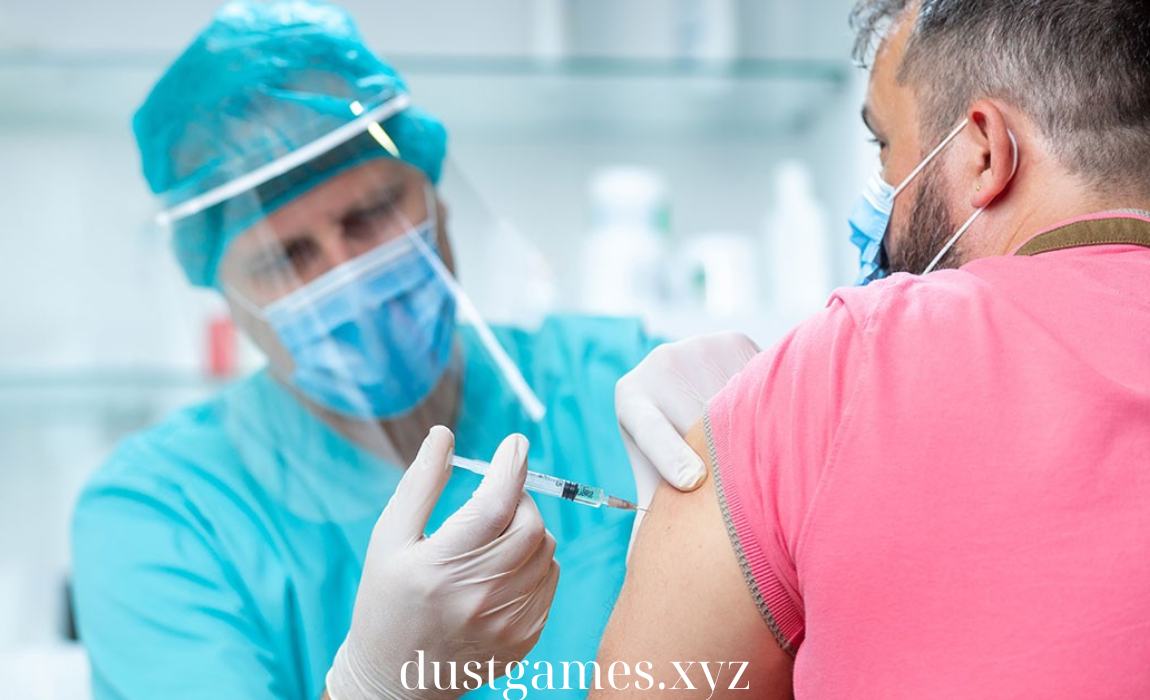Health Tips
Vaccinations for Travel: What You Need to Know Before You Go
When planning an international trip, it’s important to consider your health and safety. One key aspect of this is ensuring you are properly vaccinated before you go, as some destinations require or recommend certain vaccines to protect travelers from infectious diseases. Knowing which vaccinations are necessary for your travel destination can help you stay healthy and prevent the spread of illness. Here’s a comprehensive guide on what you need to know about vaccinations for travel.
1. Why Vaccinations Are Important for Travel
Traveling to different parts of the world can expose you to diseases that may not be common in your home country. Vaccinations protect you from these diseases, many of which can be serious or even life-threatening. In addition, being vaccinated helps prevent the spread of infections to other travelers and local populations.
Key Benefits of Vaccinations for Travel:
- Protection Against Diseases: Vaccinations provide immunity against diseases that you may encounter abroad, such as yellow fever, typhoid, or hepatitis A.
- Required for Entry: Some countries require proof of certain vaccinations, such as yellow fever, before allowing entry.
- Healthier Travel Experience: Vaccinations help ensure that your trip isn’t interrupted by illness, allowing you to enjoy your travel plans without worry.
2. Common Travel Vaccinations
There are several vaccinations commonly recommended or required for international travel. The vaccines you’ll need depend on your destination, travel plans, and your personal health. Here’s an overview of common travel vaccines and the diseases they protect against.
2.1 Hepatitis A and B
- Hepatitis A: Spread through contaminated food and water, hepatitis A affects the liver and can cause symptoms like fatigue, nausea, and jaundice. It’s especially recommended for travelers visiting developing countries or regions with poor sanitation.
- Hepatitis B: Transmitted through blood and bodily fluids, hepatitis B can cause chronic liver disease and is recommended for travelers who may have potential exposure to contaminated needles, tattoos, or sexual activity in areas where the disease is prevalent.
2.2 Typhoid
Typhoid fever is caused by bacteria found in contaminated food and water. The vaccine is recommended for travelers visiting regions with poor sanitation, particularly in parts of Asia, Africa, and Latin America. A typhoid vaccine can be administered as a shot or taken orally.
2.3 Yellow Fever
Yellow fever is a mosquito-borne viral disease found in parts of Africa and South America. Many countries require proof of yellow fever vaccination, especially if you’re traveling from an area where yellow fever is present. The vaccine is usually administered at designated travel clinics, and you’ll receive an International Certificate of Vaccination or Prophylaxis (ICVP) as proof.
2.4 Rabies
Rabies is a potentially fatal disease transmitted through the bite of an infected animal. While it’s relatively rare, travelers spending extended time in rural areas or working with animals in countries with a high risk of rabies should consider the rabies vaccine.
2.5 Japanese Encephalitis
This mosquito-borne virus is found in rural areas of Asia and the Pacific Islands. It can lead to serious neurological issues and is recommended for travelers spending extended periods in affected areas or visiting during the transmission season.
2.6 Cholera
Cholera is a bacterial infection spread through contaminated food and water, leading to severe diarrhea and dehydration. The cholera vaccine is recommended for travelers visiting areas with active outbreaks, particularly in regions of Africa, Asia, and the Caribbean.
2.7 Meningococcal Disease
Meningococcal disease can cause meningitis and sepsis, particularly in crowded living conditions. Vaccination is required for pilgrims attending the Hajj in Saudi Arabia and is recommended for travelers to areas with meningitis outbreaks, including parts of sub-Saharan Africa.
2.8 Influenza
Flu season varies across regions, so getting a flu shot before you travel can protect you against influenza outbreaks at your destination. The flu shot is especially recommended for travelers during the winter months or those visiting crowded areas where transmission is high.
3. Vaccinations Required for Entry
Certain countries have vaccination requirements for travelers entering their borders. These requirements are usually based on the risk of certain diseases in the country or region. The most common requirement is for yellow fever, but others may apply depending on your destination and travel history.
3.1 Yellow Fever Certificate
As mentioned earlier, many countries in Africa and South America require proof of yellow fever vaccination for travelers coming from regions where yellow fever is endemic. Without this certificate, you may be denied entry or quarantined upon arrival.
3.2 Meningococcal Vaccine for Hajj Pilgrims
If you’re traveling to Saudi Arabia for the annual Hajj pilgrimage, you’ll need proof of meningococcal vaccination. This is a requirement due to the high risk of disease spread in large crowds during the pilgrimage.
Pro Tip: Check the vaccination requirements for your destination well in advance of your trip, as some vaccines need to be administered weeks before departure to be fully effective.
4. When to Get Vaccinated
Timing is critical when it comes to travel vaccinations. Some vaccines require multiple doses or take time to become fully effective, so it’s important to plan ahead. Here are some guidelines on when to get vaccinated before your trip.
4.1 Plan Ahead (4-6 Weeks Before Travel)
It’s best to schedule an appointment with a travel clinic or healthcare provider at least 4 to 6 weeks before your departure. This allows enough time for vaccines to take effect and for any required follow-up doses.
- Yellow Fever: The yellow fever vaccine must be administered at least 10 days before entering a country with yellow fever requirements.
- Hepatitis A: You’ll need at least one dose of the hepatitis A vaccine before travel, but a second dose is required for long-term protection.
- Typhoid: The oral typhoid vaccine requires multiple doses over the course of a week, so plan ahead.
4.2 Last-Minute Travelers
If your trip is last-minute, you may still be able to get some travel vaccines, such as the hepatitis A, influenza, or rabies vaccine, depending on your risk factors. Some vaccines offer immediate protection after administration, while others may take longer to be effective.
5. Where to Get Vaccinated
You can receive travel vaccinations at travel clinics, primary care physicians, or specialized vaccination centers. Some vaccines, such as yellow fever, are only available at certified travel clinics.
5.1 Travel Clinics
Travel clinics specialize in vaccinations and health advice for travelers. They offer comprehensive services, including vaccine recommendations, prescriptions for malaria prevention, and tips on staying healthy abroad.
5.2 Pharmacies and Healthcare Providers
Many pharmacies offer common travel vaccines, including hepatitis A and B, typhoid, and flu shots. Your primary care physician can also administer certain vaccines, though they may not stock more specialized ones like yellow fever.
Pro Tip: Bring a copy of your vaccination record with you to the clinic to ensure you’re up-to-date on routine vaccines like tetanus or measles, mumps, and rubella (MMR).
6. Considerations for Special Populations
Some travelers may need to take special precautions when it comes to vaccinations. This includes pregnant women, children, the elderly, and those with weakened immune systems.
- Pregnant Travelers: Some vaccines, such as the yellow fever vaccine, are not recommended for pregnant women. Speak to your healthcare provider about alternative measures, such as avoiding travel to areas where these vaccines are required.
- Children: Ensure your child is up-to-date on routine vaccines, including measles, polio, and hepatitis. Some travel vaccines may be required for children depending on the destination.
- Elderly Travelers: Older travelers may be at higher risk for certain diseases, such as influenza or pneumococcal infections, and should consider additional vaccines based on their age and health status.
7. Additional Health Precautions
In addition to vaccinations, taking preventative steps during your trip can further protect your health. This includes taking precautions against mosquito bites, practicing good hand hygiene, and ensuring safe food and water consumption.
- Mosquito Prevention: Use insect repellent, wear long sleeves and pants, and sleep under mosquito nets when in regions with diseases like malaria, dengue, or Zika.
- Safe Food and Water: Stick to bottled or treated water and avoid raw or undercooked food in areas with poor sanitation to prevent illnesses like traveler’s diarrhea or cholera.
Conclusion
Vaccinations are an essential part of safe and healthy travel, especially when visiting destinations with different disease risks. By researching which vaccines are required or recommended for your trip, planning your vaccinations in advance, and taking additional precautions, you can ensure a smooth and healthy journey. Be proactive about your health, and consult with a healthcare provider to make sure you’re fully protected before embarking on your next adventure.

